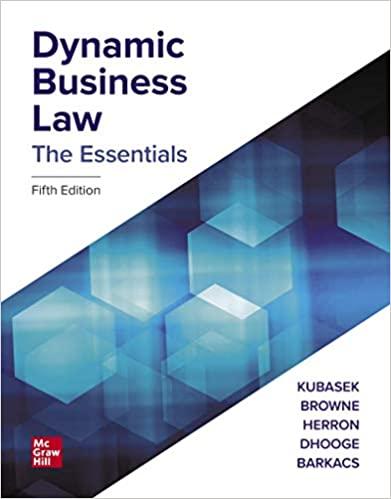A trade association asked the Federal Communications Commission (FCC) to clarify language in 47 U.S.C.S. 332(c)(7)(B)(ii)
Question:
A trade association asked the Federal Communications Commission (FCC) to clarify language in 47 U.S.C.S. § 332(c)(7)(B)(ii) which required state and local governments to act on any request to place, construct, or modify personal wireless service facilities “within a reasonable period of time.” The FCC issued a ruling that a “reasonable period of time” under the statute was presumptively (but rebuttable) 90 days to process a collocation application and 150 days to process all other applications. Several cities challenged the FCC’s ruling. The Fifth Circuit found that the FCC possessed statutory authority to adopt the 90- and 150-day time frames and that the FCC’s ruling was not arbitrary and capricious. The Supreme Court granted certiorari to review the issue. Is an agency’s interpretation of a statutory ambiguity that concerns the scope of its regulatory authority (that is, its jurisdiction) is entitled to deference? Why or why not?
Step by Step Answer:

Dynamic Business Law The Essentials
ISBN: 9781260253382
5th Edition
Authors: Nancy Kubasek, M. Neil Browne, Daniel Herron, Lucien Dhooge, Linda Barkacs





